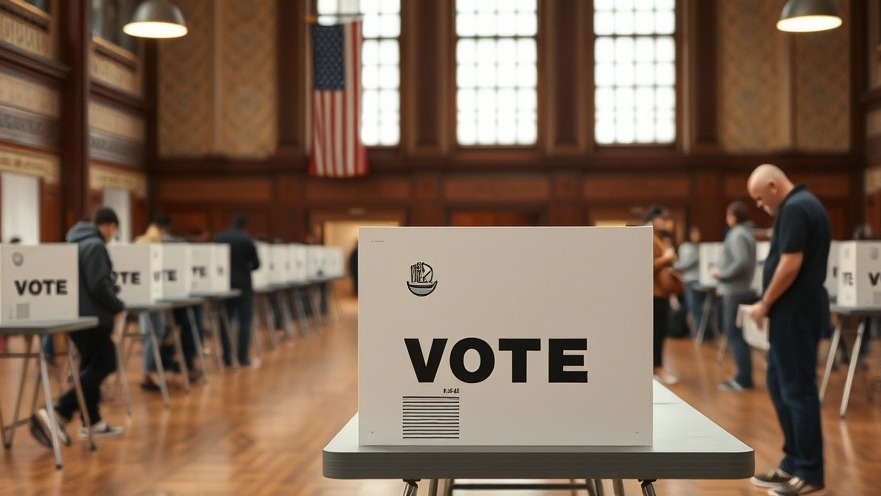
A Legislative Decision: Voting Rights in Texas Under Scrutiny
In a recent turn of events, Texas lawmakers have once again engaged in a contentious debate over voting rights, specifically around voter registration and address changes. The latest legislation, which seeks to restore restrictions that some believe hamper voter participation, has stirred a mix of support and concern within the electorate.
Understanding the New Law: What Changed?
Earlier this year, the Texas legislature introduced a measure that allowed voters to update their addresses at polling places on Election Day. This provision aimed to ensure that voters, particularly those moving within the same county, could participate in elections pertinent to their new residence without unnecessary delay. However, the recent passage of Senate Bill 54 on September 1 has effectively rolled back this flexibility, reaffirming the previous rule that requires voters to wait 30 days before their address changes become active.
This change has drawn a sharp response from various constituents, particularly those concerned with accessibility in the electoral process. Lawmakers debated the potential risks associated with immediate address changes, citing fears of ballot inaccuracies and administrative errors. Election officials, including Trudy Hancock from Brazos County, have voiced that students and transient populations might disproportionately suffer from such restrictions.
Impact on Student Voter Participation
The implications of this new law could significantly affect younger voters, notably university students. Many students move frequently for academic reasons, making it vital to have adaptive voting regulations. The concern that students could vote on inaccurate ballots raises questions about the adequacy of election infrastructures in accommodating this demographic.
As Hancock noted, while election officials aim for accuracy, the sheer volume of address changes made at polls – particularly in student-heavy areas – could overwhelm routine verification processes. This could lead to genuine fears that eligible voters will find themselves at a disadvantage.
Mixed Reactions: Community Voices
The bill saw bipartisan support yet has not come without dissent. Some lawmakers and constituents argue that the reversed measure is a step backward for voting rights in Texas. Advocacy groups focusing on voter access have warned against the repercussions of limiting voter modifications, underscoring the risk of disenfranchising eligible voters.
On social media, there has been significant confusion surrounding the idea that Texas implemented same-day voter registration. Misconceptions propagated by individuals opposing voter accessibility may have skewed public perception, further complicating discussions around this sensitive subject.
A Future of Ongoing Debate
Moving forward, the governor's expected signature on Senate Bill 54 marks a pivotal moment in Texas voter legislation. The implications of its enactment could extend beyond simple procedural changes, impacting community engagement and trust in the electoral process.
Representatives within the House, including Rep. Matt Shaheen, have pushed for additional hearings to discuss these address amendments more thoroughly. The call for a broader evaluation indicates potential shifts in strategy, as lawmakers seek a more inclusive dialogue surrounding voting rights and access.
Conclusion: Why Voter Registration Matters
Understanding these changes is essential as they directly influence Texans’ ability to participate in elections. With voting rights under continual scrutiny, it remains crucial for constituents to stay informed and engaged. As the legislature makes decisions that impact their electoral participation, voters must voice their concerns and advocate for their rights.
To remain updated on upcoming legislation, community events, and ways to ensure your voice is heard, consider subscribing to local news sources and engaging with voter advocacy groups.
 Add Element
Add Element  Add Row
Add Row 



Write A Comment